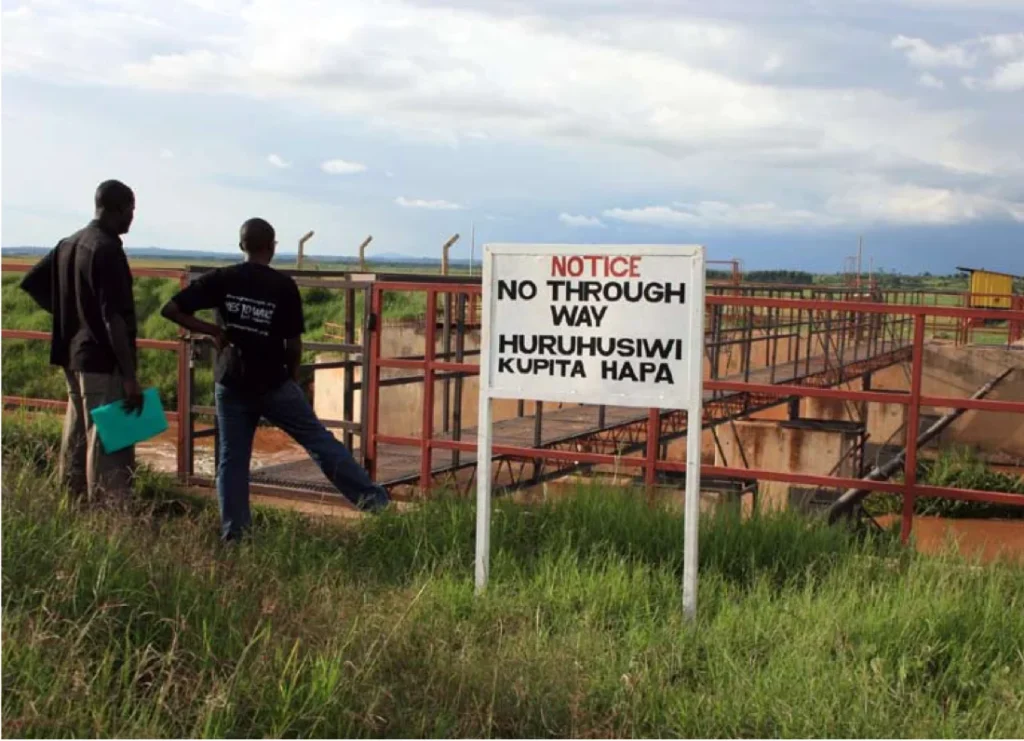By NLM Writer
The recent move to lease out idle public land to private investors mirrors an almost similar trend witnessed during the reign of former President Daniel Moi, where public land ended up in the hands of influential individuals in questionable deals.
Under his reign as President, Moi, through the ruling Kanu party, gave out large tracts of land to party loyalists and allies in deals that saw huge swaths of public land becoming personal properties of political brokers and individuals in government.
The administration at the time also gave out houses meant for civil servants or public use to party and government officials. This move would become the subject of court cases decades later.
According to some recently released documents by investigative agencies such as the Ethics and Anti-Corruption Commission, the public is believed to have lost thousands of acres of land to powerful Moi-era officials.
The deals, documents tabled before courts argue, mainly were carried out under Section 3 of the repealed Government Land Act, which gave the President power to alienate unalienated government land.
The law did not, however, define how the general or specific directions from the President were to be expressed, be it oral or in writing, with the Commissioner of Land only allowed to exercise limited delegated authority in special circumstances.
In the cases before courts, the names of two former Commissioners of Land, Wilson Gachanja and Sammy Mwaita, have featured prominently.
Some of these deals have also become subjects of debate in Parliament, with lawmakers questioning delays in repossessing some of the grabbed land.

Parliament, in a recent meeting with the management of the Agricultural Development Corporation in December, raised concerns over a failure by the corporation to recover millions of shillings in land debts involving powerful individuals in previous regimes.
ADC argued that the process of recovering said land had, however, become difficult and problematic primarily due to frustrations from high-profile individuals in government who had benefited from some of the questionable deals.
“The people settling on these parcels of land have titles. We took one of them to court, but we lost the case. The court questioned how this person got a title deed before clearing payments.
“Some of these cases involve high-profile people, and this has come with frustrations from the public offices we expected to get help,” ADC acting chief executive officer Mohammed Bulle told Parliament in December.
Bulle also added that of the 2,500-acre piece of land that ADC owned in Kimwani, Nandi county, close to about 1,500 acres had been illegally grabbed or invaded by powerful brokers in government.
“Recovering this land has proven challenging due to community hostility. Additionally, some 1,000 acres were given out in the 1990s at a minimal cost,” Bulle said.
In court, some prominent individuals said to have benefitted from these deals include a former Director of Kenya School of Law, a Kanu operative in the coastal town of Mombasa, and a former President Moi Aide De camp, among many others.
These individuals are said to have taken advantage of their closeness to President Moi to order a transfer of large swaths of land or houses to their names with the help of the Commissioner of Land. The transfers, the courts heard, were always done once an individual had identified a parcel of land they were interested in.
In one recent decision by Environment and Land Court judge Benard Eboso, a former director of the Kenya School of Law, was ordered to return a house whose title deed is said to have been fraudulently awarded with the help of government officials.
While ordering the return of the house near Nairobi Hospital to the government, the court placed the blame at the door of former commissioner of land Gachanja and the then Directorate of Survey.
In another case, Kenny Mohammed Sheikh Ali, a Kanu operative in the coastal town of Mombasa, acquired a property set aside for public use by the Kenya Revenue Authority (KRA) through the Kilifi District Commissioner.
Ali, the court heard, applied for the land because “he had done a lot for Kanu but was yet to enjoy the fruits of Uhuru”. He was given a parcel of land in Mtwapa Creek, which had been reserved for Customs house after making the application in 1994.
A year later, he informally transferred the land to Francis Gathui Wahome, who moved it to Frann Investment, which he co-owned with his wife and three sons.
In the case involving former Moi Aide-De-camp Alexander Sitieney, the court heard that Sitieney grabbed a 1.7-acre land belonging to the pyrethrum processing company, estimated to be worth Sh150 million.
Justice Antony Ombyayo of the Nakuru Environment and Land Court, in a ruling issued in March 2023, established that Sitieney illegally and irregularly procured a lease over the property for private purposes.
The said lease, the court ruled, was purportedly registered at the District Land Registry in Nakuru on March 29, 1998, and a certificate of the lease was issued to him on the same day without the knowledge or consent of the Pyrethrum Processing Company of Kenya, the registered owner of the land.
The court ruled after EACC filed a case in 2018 seeking to repossess the land next to the Pyrethrum headquarters in Nakuru Municipality.
The victory by EACC came just a month after the commission won another case in Mombasa in which it sought to reclaim a Sh70 million stolen government house in Nyali.
In the case filed by the defunct Kenya Anti-Corruption Corruption (KACC) in 2009, two private companies and the then Commissioner of Lands are said to have been involved in the fraudulent deal. (



